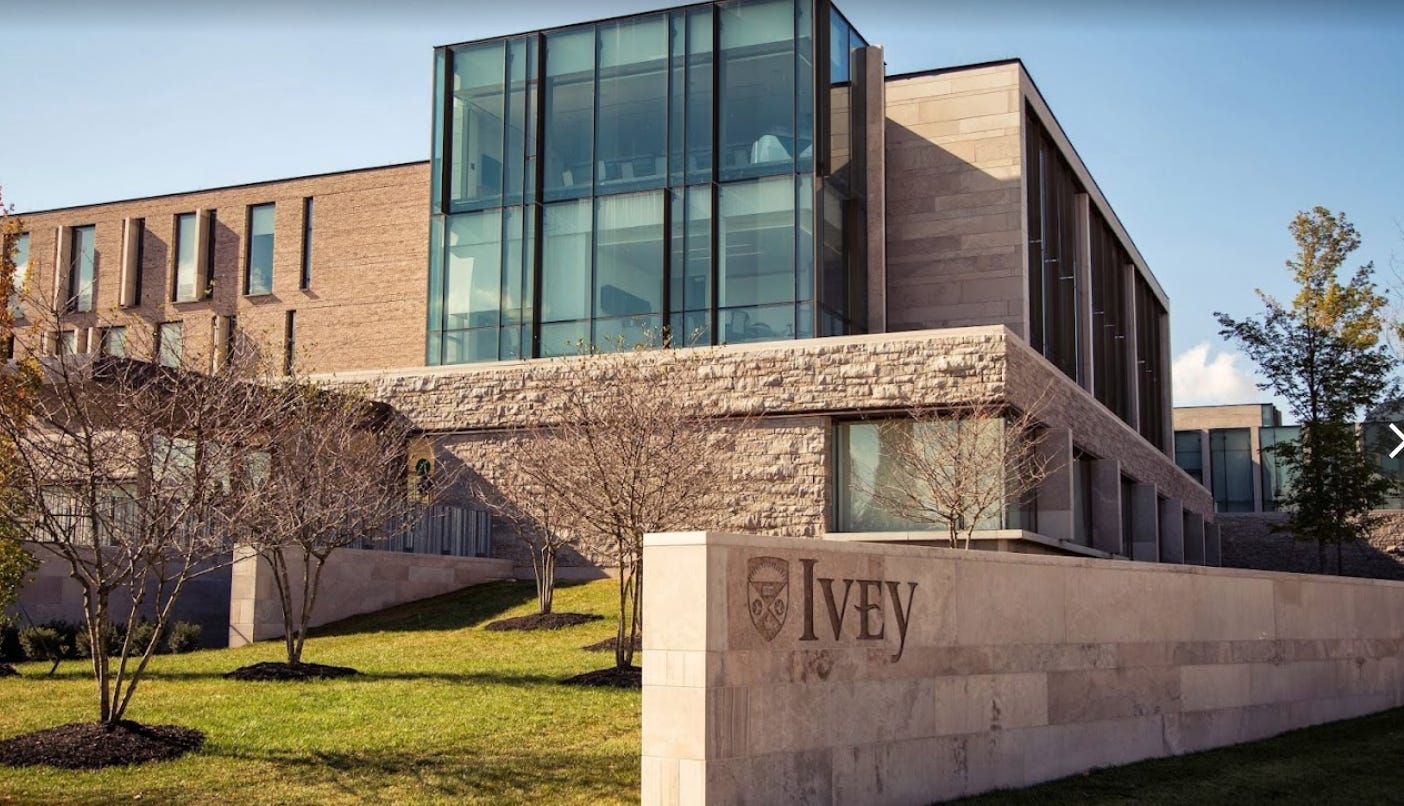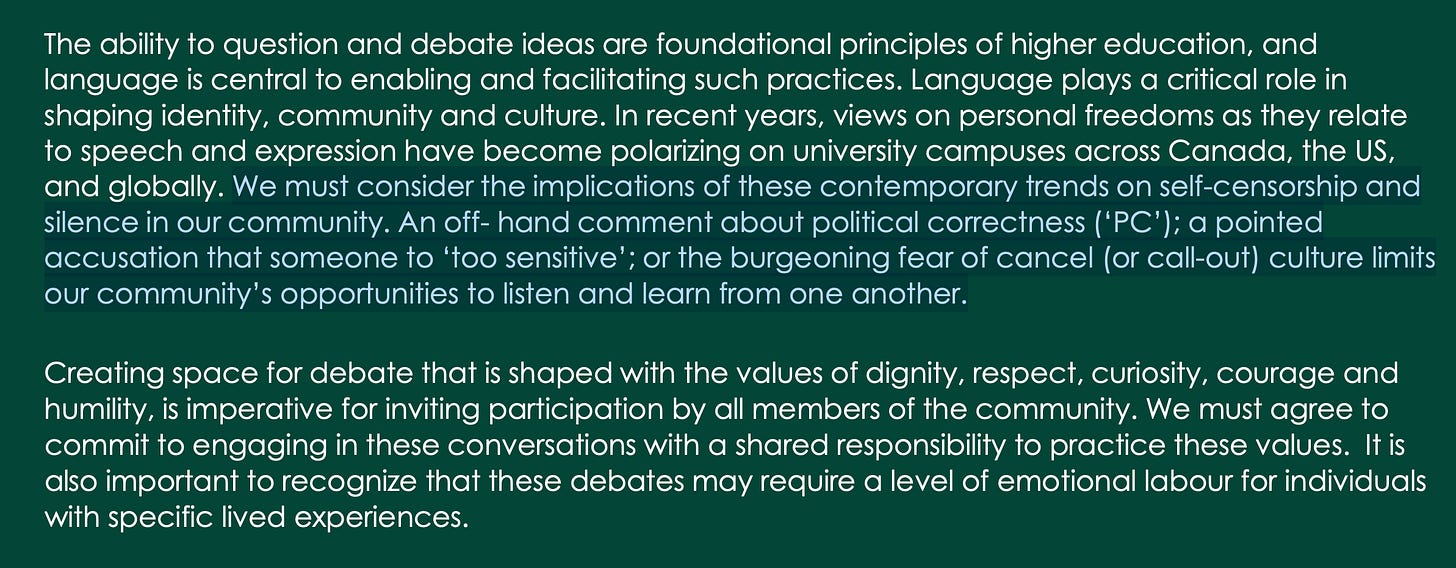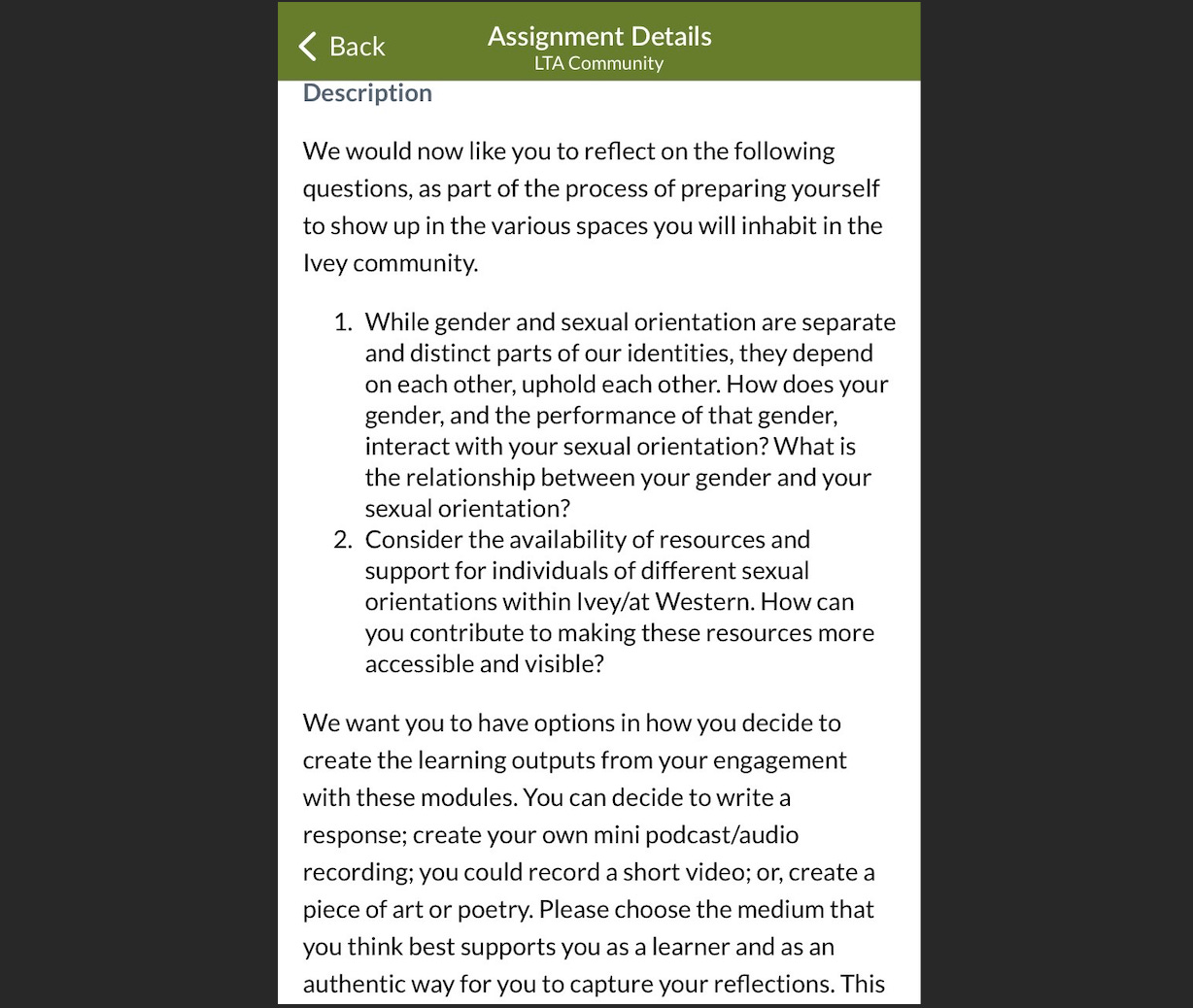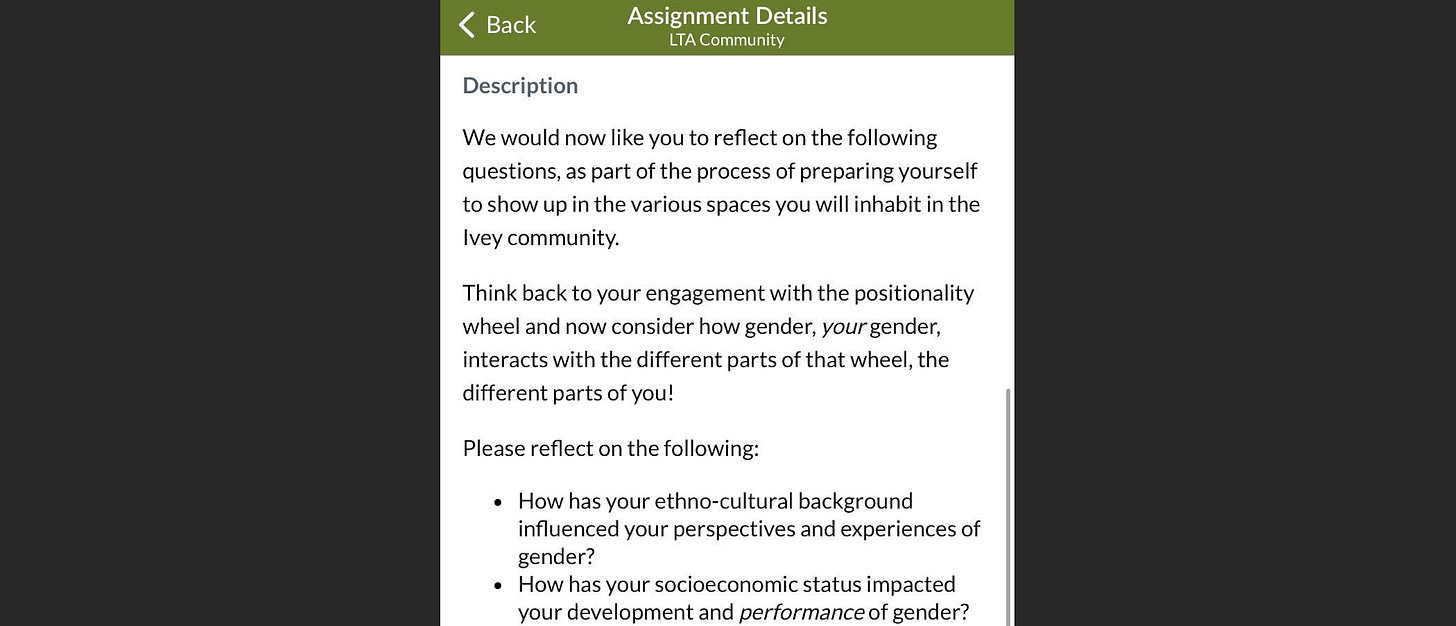Canadian Business-School Tip: Analyze the ‘Salience of Positionality’ in ‘Your Place of Workship’
At Western University's Ivey Business School—Canada’s top-rated business program—students recite pre-scripted social-justice jargon to fulfill mandatory course requirements.
For years now, old-school leftists have been calling out their younger race- and gender-obsessed counterparts for promoting progressive dogmas that function as little more than upper-class status markers.
As author Catherine Liu has noted in Quillette, members of today’s “Professional Managerial Class (PMC)” (her term) enjoy the same sumptuous lifestyles as the pampered elites of yore. But rather than share (let alone renounce) their wealth and privilege, as a true commitment to social justice would require, they re-imagine themselves as “virtuous vanguardists, floating above historical forms and conditions, transgressing boundaries and inventing new ways of being and seeing.”
Thus the apparent paradox by which Canada’s otherwise conservative corporate establishment has become an enthusiastic source of progressive sloganeering. What better way for a corner-office magnate to soothe his class conscience than to convince himself he’s saving the world by wearing a pronoun pin to his golf-club mixer, or by saying a land acknowledgement to kick off his bullish quarterly earnings call with shareholders?
Every year, almost 800 Business Administration students at Western University in southwest Ontario get a solid grounding in this brahmin ethos under the auspices of a compulsory program called Learning Through Action (LTA)—one of a number of courses comprising what are effectively call-and-response exercises in the recitation of social-justice jargon. One students reports to me that many classmates find the content ridiculous, but that they dutifully bleat their way through the expected responses so they can get on with actually learning about business.
As with a lot of materials in this field, the Ivey coursework blurs the line between education and psychoanalysis, instructing students to embark on journeys of self-interrogation that will change the very fabric of their thinking. In particular, students are asked to develop something called “an equity practice”—specifically, one that “centers on self-awareness, curiosity, and humility.”
(The instructions provide topic-specific opt-outs, however. Or at least that’s what I infer from the words, “all reflective spaces within this module recognize and support the refusal of participation.” It’s not clear if a student can pass the course if he or she exercises this right of refusal in regard to every entered “reflective space.” But it seems theoretically possible.)
Students are also told, more or less explicitly, that while it may be fine to debate one another in the normal course of their education, their instruction in “equity practice” will take place in a dissent-free environment, lest disagreement be interpreted as an affront to the “dignity” of others. Even mentioning the existence of “cancel culture,” for instance, is described as a no-no.
The Indigenous-themed module is a year-long affair. It requires students to list off stereotypes about Indigenous people, and then assess how their “positionality and identity intersect” with the work of countering such stereotypes. (I’m trying to think what a student from, say, China or Brazil is supposed to make of all this. But I suppose that delivering the correct answers to these questions can be done easily through AI, since the expected answers are so formulaic in construction.)
Read further, and you come to realize that the goal here isn’t just to ensure that Ivey students don’t say or do anything offensive to fellow students. I.e., this isn’t just a longer more pretentiously expressed version of a standard DEI seminar. Rather, it is expected that the students effectively become missionaries who go forth to tell “stories” of Canada’s racist evils:
(You may have noticed that the word “positionality” appears endlessly. The word is defined by another Canadian university as indicating a methodology by which individuals “identify their own degrees of privilege.”)
Naturally, Ivey Business School is extremely interested to learn about who its students like to have sex with—although the inquiry is embedded in the most sexless jargon imaginable: “What is the relationship between your gender and your sexual orientation.”
Like most of the other questions, this one can be answered through a podcast, a video, or even “a piece of art or poetry.” I’m guessing that a dirty limerick would do the trick—or perhaps even a sex tape, all the better to graphically demonstrate the exact physical positionality corresponding to one’s sexual preferences.
There are some questions that are so obscure, I can’t even guess what word salad they’re trying to elicit from students. E.g., “How has your socioeconomic status impacted your development and performance of gender?” Answers on a postcard, please.
Among the many diagrams included in the materials is one that explains human identity through a model described variously as “ecological” or “ecosystems.” It’s a detail I mention so that readers may better appreciate this gem: “Thinking about the ecosystems model, and the attributes it describes, please reflect on how the salience of your positionality has changed over time.”
In the next paragraph, students are invited to follow up this positionality-themed self-interrogation with a further question as to how “the salience of your positionality will continue to change as you navigate co-creating your Ivey community”—and then, “How is the salience of your positionality possibly different in your place of workship.”
Workship. Not a typo. Mere work is what the little people do—the ones who empty the wastebaskets and sweep the classrooms after the priests and their parishoners have gone home to reflect on their positionaltiy and create their art projects. Workship is what captains of industry do when they’re on a Zoom call.
Next step for Ivey students: Tell us how you will be “celebrating Black excellence.” Again, poetry and sculpture are both perfectly fine media for communicating your answers. For instance, you could use papier mâché to render Denzel Washington in a dramatic pose. Or perhaps a rap poem about your favourite Jeffersons episode. (It was a show. Look it up, kids.)
But since it’s a celebration, I’m guessing a cake would be okay, too. Just drop it off for me during my office hours and I’ll take it home for evaluation. If it merits a passing grade, I’ll let you know.
In the meantime, keep working on the salience of your positionality.

















How much are students being paid to endure this?
Oh, you mean it is the students who are the ones paying?
Not sure I understand that business model.
Sort of like going to the doctor and paying him to infect you with scrofula.
Unbelievable stupidity. This all sounds based on the way Marxist-Leninist compulsory rote and study sessions were conducted before the fall of communism in the USSR.
Read the writings of dissidents and even just fed up citizens who wrote about this prior to1990.
I met a few people who managed to get out of Russia. This all reminds me of what they told me back then.
The worst of cancel culture and bitter attacks on ‘heretics’ seems to be inspired by Mao’s Red Guards behaviour in the 1960s ; fortunately, not with the horrific violence that so often accompanied it. I was a teen then, and I recall the stories coming out of China at the time.
The left in Canada is not the left I felt a kinship with for so long.
They have gone down a rabbit hole, to be sure and I have not gone with them.